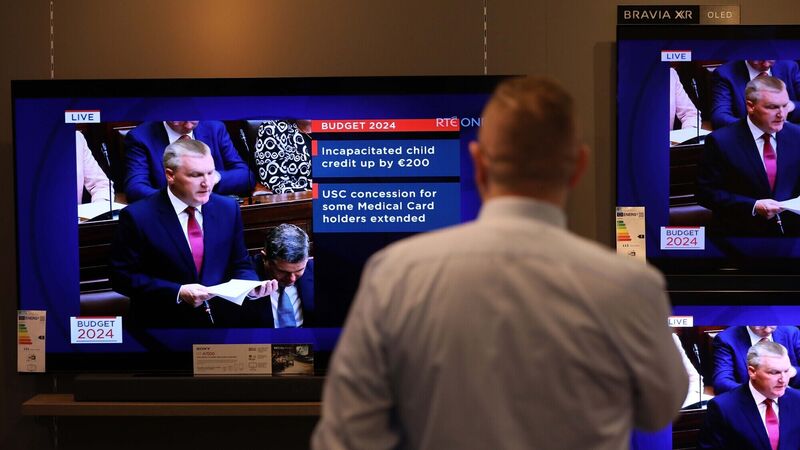Farmers are glad that fuel excise levies have been delayed

A shopper pauses to watch Finance Minister Michael McGrath announce the details of Budget 2024 on TVs in Arnotts department store in Dublin. Picture: Sasko Lazarov/Rolling News
Try from €1.50 / week
SUBSCRIBEThis year's budget, presented by Finance Minister Michael McGrath, has sought to please everyone by dividing the spoils across income and age demographics, across those who are employed and those in receipt of social welfare, those who rent and those who are under pressure with mortgage interest hikes.
In delivering his speech, Mr McGrath acknowledged that inflation had caused difficulties for households and noted most recent data showing inflation easing to 5% in September. He further commented that he expected this trend will continue in the coming months improving real household incomes and purchasing power.
Already a subscriber? Sign in
You have reached your article limit.
Annual €130 €80
Best value
Monthly €12€6 / month
Introductory offers for new customers. Annual billed once for first year. Renews at €130. Monthly initial discount (first 3 months) billed monthly, then €12 a month. Ts&Cs apply.
Newsletter
Keep up-to-date with all the latest developments in Farming with our weekly newsletter.
Newsletter
Keep up-to-date with all the latest developments in Farming with our weekly newsletter.
Newsletter
Sign up to the best reads of the week from irishexaminer.com selected just for you.
Newsletter
Keep up with stories of the day with our lunchtime news wrap and important breaking news alerts.
Saturday, February 7, 2026 - 9:00 PM
Saturday, February 7, 2026 - 9:00 PM
Saturday, February 7, 2026 - 12:00 PM
© Examiner Echo Group Limited